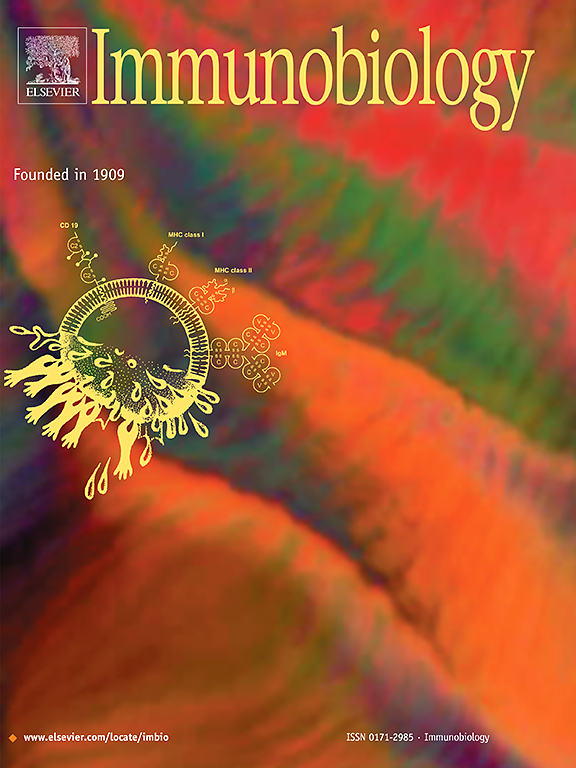Pan-cancer analysis of GINS1 identifies its prognostic and immunotherapy predictive value with in vitro experimental validation in nasopharyngeal carcinoma
IF 2.3
4区 医学
Q3 IMMUNOLOGY
引用次数: 0
Abstract
Background
GINS complex subunit 1 (GINS1) is part of the tetrameric GINS complex involved in DNA replication, playing a vital role in controlling the start and continuation of DNA replication. Its role in cancer, however, is not well understood. Still, its relevance to cancer is uncertain. This study focused on exploring the role of GINS1 in different forms of cancer.
Methods
Using a range of publicly available databases, we conducted a comprehensive study on the oncogenic function of GINS1 in pan-cancer through analyses of differential expression, survival, enrichment, gene mutations and tumor immune cell infiltration. Additionally, the expression and effects of GINS1 in nasopharyngeal carcinoma (NPC) were analyzed through a series of in vitro experiments.
Results
GINS1 was found to be overexpressed in nearly all tumors, demonstrating notable diagnostic and prognostic potential. Moreover, the relationship between GINS1 and specific immune characteristics (such as immune cell infiltration, immune checkpoint genes, tumor mutational burden, and microsatellite instability) suggests its potential role in guiding immunotherapy approaches. In vitro studies show that GINS1 notably enhances proliferation, migration, and invasion of NPC cells, with elevated expression levels correlating with a poorer prognosis.
Conclusions
GINS1 might serve as a prognostic and immunotherapy marker for different types of cancers, such as nasopharyngeal carcinoma.
泛癌分析证实GINS1在鼻咽癌中的预后和免疫治疗预测价值,并进行了体外实验验证
GINS1复合物亚基1 (GINS1)是参与DNA复制的四聚体GINS复合物的一部分,在控制DNA复制的开始和继续方面起着至关重要的作用。然而,它在癌症中的作用尚不清楚。然而,它与癌症的关系尚不确定。本研究的重点是探索GINS1在不同形式癌症中的作用。方法利用一系列公开的数据库,通过分析GINS1在泛癌中的差异表达、存活、富集、基因突变和肿瘤免疫细胞浸润等方面,全面研究GINS1在泛癌中的致癌功能。此外,通过一系列体外实验分析GINS1在鼻咽癌(NPC)中的表达及其作用。结果gins1在几乎所有肿瘤中均过表达,显示出显著的诊断和预后潜力。此外,GINS1与特异性免疫特性(如免疫细胞浸润、免疫检查点基因、肿瘤突变负担和微卫星不稳定性)之间的关系提示其在指导免疫治疗方法方面的潜在作用。体外研究表明,GINS1显著增强鼻咽癌细胞的增殖、迁移和侵袭,表达水平升高与预后较差相关。结论sgins1可作为鼻咽癌等不同类型肿瘤的预后和免疫治疗标志物。
本文章由计算机程序翻译,如有差异,请以英文原文为准。
求助全文
约1分钟内获得全文
求助全文
来源期刊

Immunobiology
医学-免疫学
CiteScore
5.00
自引率
3.60%
发文量
108
审稿时长
55 days
期刊介绍:
Immunobiology is a peer-reviewed journal that publishes highly innovative research approaches for a wide range of immunological subjects, including
• Innate Immunity,
• Adaptive Immunity,
• Complement Biology,
• Macrophage and Dendritic Cell Biology,
• Parasite Immunology,
• Tumour Immunology,
• Clinical Immunology,
• Immunogenetics,
• Immunotherapy and
• Immunopathology of infectious, allergic and autoimmune disease.
 求助内容:
求助内容: 应助结果提醒方式:
应助结果提醒方式:


